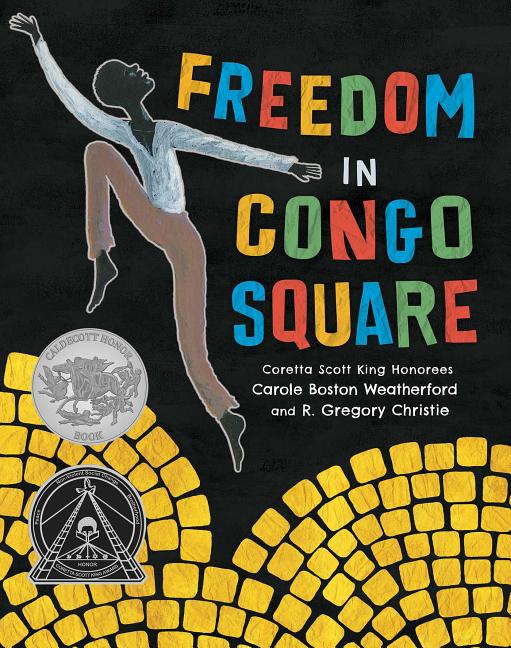Book Description
for Freedom in Congo Square by Carole Boston Weatherford and R. Gregory Christie
From Cooperative Children's Book Center (CCBC)
A potent narrative begins, “Mondays, there were hogs to slop, / mules to train, and logs to chop. / Slavery was no ways fair. / Six more days to Congo Square.” Congo Square, the essential Foreword explains, was a legal gathering spot for enslaved and free Blacks in New Orleans. The first 14 couplets count down the days to Congo Square, documenting the work of enslaved men and women as they labored in fields and in houses, in despair and in defiance, Monday through Saturday. “The dreaded lash / too much to bear … Run away, run away. Some slaves dared.” The remaining 11 couplets mark the transition to Sunday, and the gathering in Congo Square, spinning out details of music and dancing, chanting and singing, lifting spirits and hearts. The words are set against spare, expressive paintings in which stylized, elongated figures with little or no facial details carry out the heavy work of Monday through Saturday. The constrained figures break free once Sunday comes, moving with fluid joy and abandon. A glossary and an author’s note providing more historical context conclude this rich and stirring work. Winner, 2017 Charlotte Zolotow Award (Age 6 and older)
CCBC Choices 2017. © Cooperative Children's Book Center, Univ. of Wisconsin - Madison, 2017. Used with permission.


